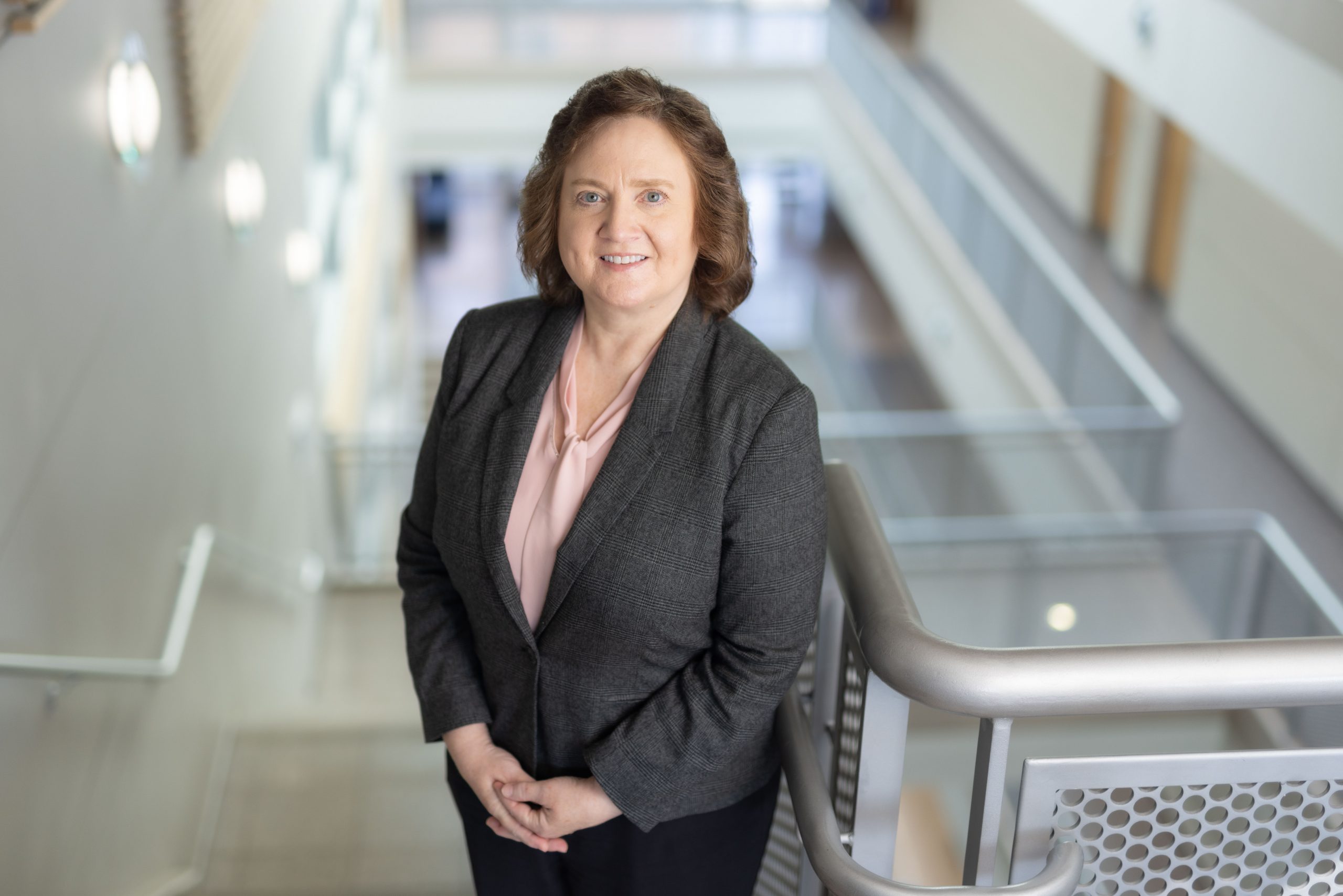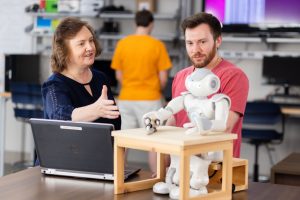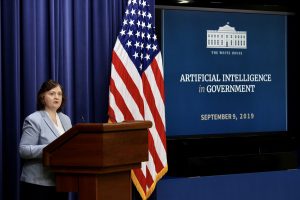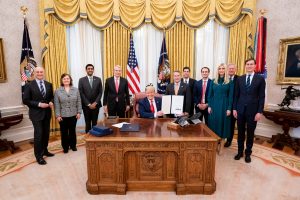By Tomas Weber. Photography by Steven Bridges.
After 22 years at UT, Lynne Parker, associate vice chancellor and director of the AI Tennessee Initiative, retired in May. Parker has been at the forefront of artificial intelligence and robotics for her entire career. Her work has shaped the field from both research and policy standpoints.
When Parker joined UT in 2002 as a professor in what is now the Min H. Kao Department of Electrical Engineering and Computer Science, she was already a pioneer in the development of cutting-edge multirobot systems. She had worked in that area in her doctoral research at the Massachusetts Institute of Technology and then at Oak Ridge National Laboratory.
“I thought through how you can have teams of robots working together without a top-down controller,” she said—a discovery with applications from manufacturing to the management of natural resources.
In 2018, Parker, then the interim dean of the Tickle College of Engineering, accepted an offer to work at the White House Office of Science and Technology Policy. She held a sequence of positions that put her at the forefront of the country’s AI policy at a critical moment.
She has had a profound effect at the highest levels of US government, elevating the importance of AI and advocating successfully for significant national investments in AI research and workforce development. She then returned home to Tennessee and UT, setting our AI Tennessee Initiative on the path to success.”
Today, AI is pervasive. As little as six years ago, though, the technology was poorly understood, and its potential to transform society went mostly unrecognized.
Across two different presidential administrations, Parker held the White House posts of assistant director for artificial intelligence and deputy chief technology officer of the United States. In 2021, she was named the founding director of the National Artificial Intelligence Initiative Office.
It was an exciting time. Policymakers were just beginning to glimpse the practical applications of AI and its potential economic and social impacts. Parker and her White House colleagues had free rein to establish the foundations of the federal government’s approach to AI policy.
“When I started in 2018, there was almost no governance of AI,” Parker said. “We were able to craft policies in many different areas, from research and development to executive orders and international agreements.”
With her team, Parker “laid out a lot of the fundamental policies about how the federal government should pursue AI in a responsible way,” she said. “We got a lot done.”
In 2022, Parker returned to UT full time as associate vice chancellor and director of the AI Tennessee Initiative, a research and education initiative that engages with industry and community partners to realize Tennessee’s unique opportunities in AI, from smart manufacturing and precision health to climate-smart agriculture. “Our goal is to have Tennessee become a leader in the AI-driven workplace and economy,” she said.
Parker’s impact on the university has not gone unnoticed, and her legacy will be forever cemented through her work and the lives she touched.
“Lynne Parker is one of Tennessee’s finest,” said Deborah Crawford, vice chancellor for research, innovation, and economic development. “She has had a profound effect at the highest levels of US government, elevating the importance of AI and advocating successfully for significant national investments in AI research and workforce development. She then returned home to Tennessee and UT, setting our AI Tennessee Initiative on the path to success. Lynne exemplifies the Volunteer spirit, bearing a torch to light the way for others.”
When Parker looks to the future, she is optimistic that policymakers and industry will be able to unleash the power of AI to improve society while successfully minimizing risks.
“I think people are now recognizing the amazing benefits we can get from AI,” she said. “We now know which areas need to be governed, and we’re preparing those governance approaches so that over the next five years we can leverage the benefits in a responsible manner.”
But she still sees big challenges on the horizon. The AI breakthroughs over the past couple of years have all been powered by enormous volumes of data. This is possible “because we’ve digitized the world,” Parker said. But unlike AI systems, human brains do not need large amounts of data to think and reason effectively.
“We have not answered the question of how people can reason in such an efficient way compared to current AI systems that require a lot of data,” she said. “I think there’s a lot of interesting work for AI researchers in the decades to come.”
As she passes the baton to the next generation of AI researchers and policymakers, Parker is proud “of having been able to contribute at the cutting edge of both research and policy,” she said. “It’s been wonderful.”
Photo Gallery
See what Parker has worked on during her career at UT.




